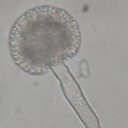中文(繁體)
Albanian
Arabic
Armenian
Azerbaijani
Belarusian
Bengali
Bosnian
Catalan
Czech
Danish
Deutsch
Dutch
English
Estonian
Finnish
Français
Greek
Haitian Creole
Hebrew
Hindi
Hungarian
Icelandic
Indonesian
Irish
Italian
Japanese
Korean
Latvian
Lithuanian
Macedonian
Mongolian
Norwegian
Persian
Polish
Portuguese
Romanian
Russian
Serbian
Slovak
Slovenian
Spanish
Swahili
Swedish
Turkish
Ukrainian
Vietnamese
Български
中文(简体)
中文(繁體)
PeerJ 2019
只有註冊用戶可以翻譯文章
登陸註冊
鏈接已保存到剪貼板
Results
The overall microbial structure was similar in both the controls and the patients, but the control group had higher relative presence of Blautia obeum while the presence of Streptococcus infantis and Prevotella copri were relatively higher in the patient group. Using linear regression, we found that Blautia obeum was negatively associated with white blood cell count and Streptococcus infantis was positively correlated with creatinine and lipoprotein. The KEGG pathway analysis indicated that the bio-pathways including methane metabolism, lipopolysaccharide synthesis, bacterial secretion, and flagellar assembly of the gut microbiota in the patient group was expressed differently than that of the controls. We identified three differentially expressed gut microbial functions in Acute Cerebral Infarction and found four bacterial pathways that might be related to the development of this disease.Conclusions
Our study identified three abnormally-expressed bacteria-Blautia obeum, Streptococcus infantis, and Prevotella copri-in patients with Acute Cerebral Infarction compared with healthy controls. It reveals a correlation of these bacterial species with Acute Cerebral Infarction as they relate to disease factors and functional pathways. These findings may shed light on the treatment of cerebral infarction because gut microbiota could serve as a potential therapeutic approach for the treatment of cardiovascular and metabolic diseases.




